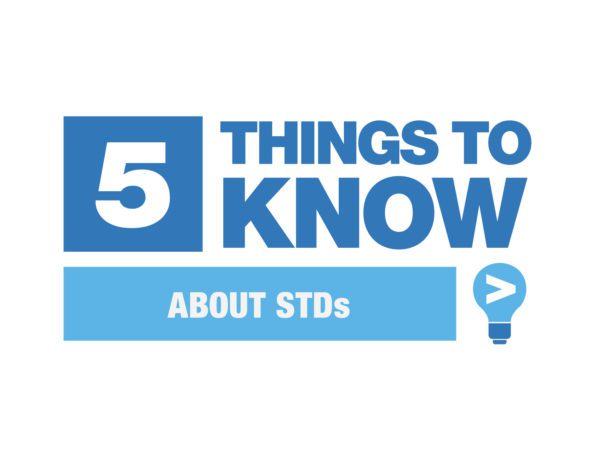Five Things To Know About STDs
- STDs are very common.
- STDs often show no symptoms. Many people with an STD don’t know it.
- Left untreated, STDs can cause serious health problems.
- Good news! All STDs are treatable (including HIV), and many are curable.
- To know for sure you are being tested, ASK to be tested!
Frequently Asked Questions
Chlamydia
Chlamydia is one of the most common STDs. Many people who have chlamydia do not know it. Often there are no symptoms. Left untreated, chlamydia can cause infertility and pain in both women and men. Once diagnosed, it is easily cured with antibiotics.
Click on a question below to learn more about chlamydia.
Gonorrhea
Gonorrhea is a common STD, especially among teens and people in their 20s. It is sometimes called “the clap” or “the drip.” Gonorrhea may not show symptoms. Left untreated, it can cause infertility and pain in both women and men. Once diagnosed, it is easily cured with antibiotics.
Click on a question below to learn more about gonorrhea.
Hepatitis B
Hepatitis B is a viral infection that can cause liver disease. About half of people with hepatitis B do not experience any symptoms. There is no cure, but a vaccine is available to protect against infection.
Click on a question below to learn more about hepatitis B.
Hepatitis C
Hepatitis C is a viral infection that affects the liver. Most people do not experience any symptoms. Hepatitis C can be cured with prescription medication. Left untreated, it can lead to liver disease, cancer and even death.
Click on a question below to learn more about hepatitis C.
Herpes
Herpes is a very common STD. It can cause sores on the genitals and/or mouth. There is no cure for herpes, but prescription medication can ease symptoms and lower the chances of passing the virus to others. Herpes can be painful, but usually does not lead to serious health problems.
Click on a question below to learn more about herpes.
HIV/AIDS
HIV is a virus that attacks the immune system and can lead to AIDS, a clinical diagnosis that indicates an advanced stage of HIV. HIV may not show symptoms initially. Testing is recommended as a part of routine healthcare.
There is no cure for HIV/AIDS, but antiretroviral (ARV) prescription medications allow people with HIV to live normal, healthy lifespans. Consistent ARV use also prevents transmission to others. Left untreated, HIV can lead to death.
Click on a question below to learn more about HIV/AIDS.
HPV
HPV is the most common STD. There are more than 150 different types of HPV. Many forms of HPV do not show any symptoms. Some cause genital warts. The HPV vaccine protects against certain types that are associated with genital warts and cervical cancer.
Click on a question below to learn more about HPV.
Syphilis
Syphilis is a common, curable STD. Cases in the U.S. are at record highs, including cases when people pass syphilis to their babies during pregnancy (congenital syphilis).
Click on a question below to learn more about syphilis.
Trichomoniasis
Trichomoniasis is a very common STD, sometimes called “trich” for short. It often does not show any symptoms. Trich is usually not serious. Once diagnosed, it is easily cured with antibiotics.
Click on a question below to learn more about trichomoniasis.
Find FREE HIV & Other STD Testing Near You
Call to confirm hours and available services, appointments may be required.
Doxy PEP!
Doxy PEP
Now there is an option to prevent some common STDs after sex.
Doxy PEP requires a prescription and must be taken within 72 hours of a possible exposure.

